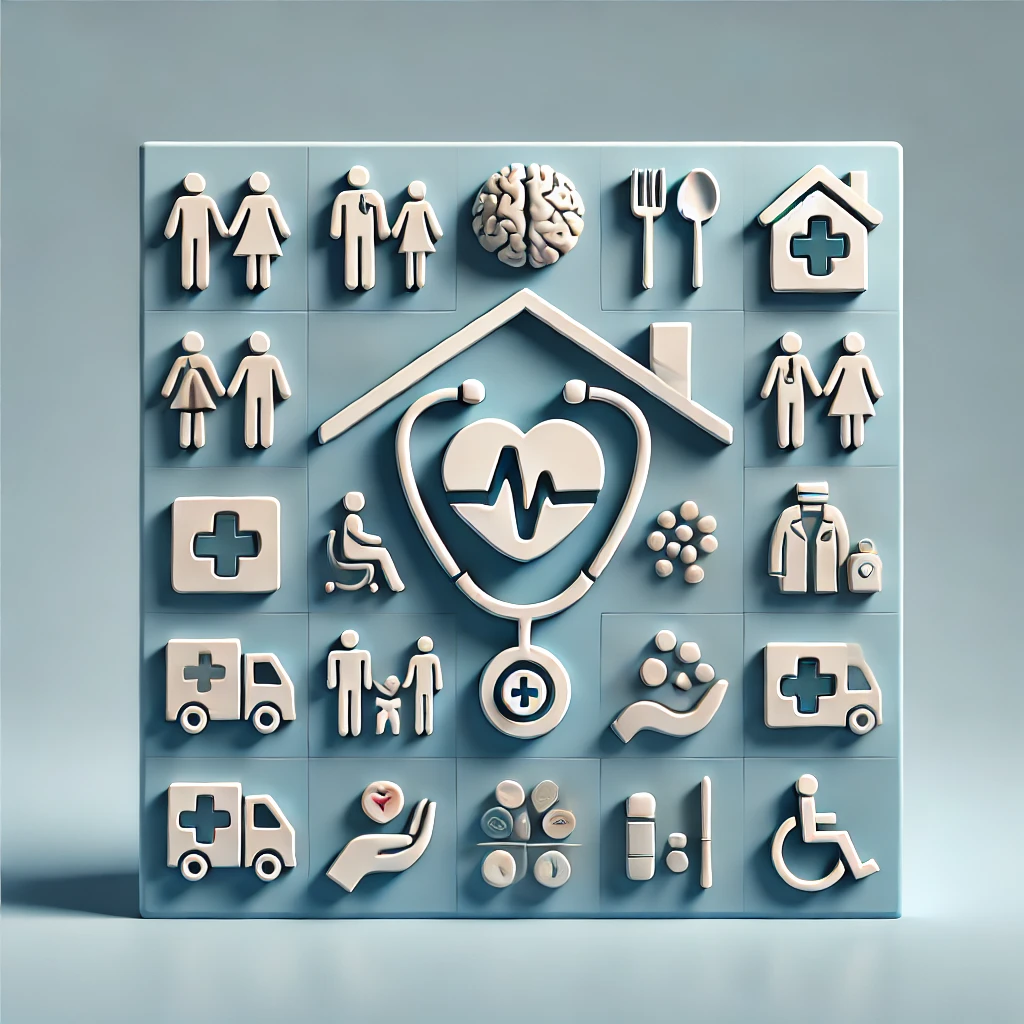
Top Legal and Ethical Guidelines for Homecare Services in 2025
According to the Statistics, rates of homecare services are growing and their scope is evolving, particularly in the integration of digital tools and telehealth, and the industry has to solve new and more complicated issues with maintaining its standards on a legal and an ethical level in this instance. This guide details a comprehensive, systematic approach to implementing a well designed compliance framework that will help homecare organisations to deliver excellent ethical care while meeting all regulatory responsibilities.
1. Foundational Legal Compliance
Caregiver Licensing and Credentialing
It is essential for homecare agencies to ensure that all caregivers have the necessary qualifications. This involves conducting thorough checks of credentials during the hiring process and implementing a system for ongoing monitoring to identify any lapses in certification or licensing. By actively managing credentialing, agencies can mitigate legal risks and provide clients with the assurance of receiving professional, skilled care.
Scope of Practice Compliance
Clearly defining each caregiver’s role and responsibilities in accordance with their qualifications and training is crucial. This is particularly important in homecare, where tasks can vary significantly from basic personal care to more specialized health support. By ensuring that caregivers operate within their designated scope, agencies can reduce the risk of malpractice and uphold the quality and safety of patient care.
Labor Laws and Employee Rights
Adhering to labor laws, which include fair wages, appropriate working hours, and benefits, is vital. Homecare agencies should create clear policies regarding working hours, overtime, and benefits to help prevent caregiver burnout and foster a positive work environment. Providing these protections not only meets legal requirements but also aids in retaining skilled caregivers in an industry that often experiences high turnover.
2. Building a Secure Framework for Data Protection
Patient Privacy and Data Security
As digital health records and remote monitoring systems become more prevalent, protecting patient data is crucial. Homecare organizations need to establish strong data protection measures to comply with regulations like the Health Insurance Portability and Accountability Act (HIPAA) in the U.S. and the General Data Protection Regulation (GDPR) in Europe. This involves utilizing secure digital platforms, encrypted storage solutions, and implementing access restrictions to safeguard sensitive patient information.
Confidentiality and Building Client Trust
Confidentiality is fundamental to the caregiver-client relationship, as it helps build trust and creates a respectful atmosphere. Caregivers should undergo regular training on best practices for confidentiality, which should include guidance on managing personal information and understanding the boundaries of sharing information with family members. A well-implemented confidentiality policy strengthens the trust between clients and caregivers, fostering a safe and respectful environment for home-based care.
Comprehensive Liability Insurance
Having adequate liability insurance is vital for addressing potential legal claims, thereby protecting both the agency and its caregivers. Homecare providers should pursue comprehensive coverage that encompasses the various risks associated with caregiving, including general liability, professional liability, and worker’s compensation. This financial safety net not only provides peace of mind to caregivers but also reassures clients that any unexpected incidents will be managed appropriately.
3. Operational Standards for Safe, Consistent Care
Medication Administration and Management
Implementing strict protocols for handling medications is essential in homecare, where patients often need help with their prescribed treatments. Agencies should offer comprehensive guidelines on how to administer, store, and document medications, along with clear instructions for verifying dosages and schedules. Conducting regular audits of medication records is important to ensure compliance with these protocols, thereby minimizing the risk of medication errors.
Mandatory Reporting for Abuse Prevention
Homecare providers have a legal responsibility to report any indications of abuse or neglect, safeguarding the safety and well-being of vulnerable clients. Staff should receive training to identify potential signs of abuse, which can include physical, emotional, and financial mistreatment. Establishing clear reporting channels is vital so that caregivers feel empowered and supported when raising any concerns.
Quality of Care Standards
Quality standards act as benchmarks for assessing caregiver performance and ensuring uniformity in care delivery. Agencies should clearly define these standards across all areas of care, from personal assistance to specialized medical support, and carry out regular performance evaluations. Gathering client feedback and conducting satisfaction surveys are effective methods for monitoring and enhancing the quality of care provided.
4. Patient-Centered Ethical Standards
Medication Administration and Management
Implementing strict protocols for handling medications is essential in homecare, where patients often need help with their prescribed treatments. Agencies should offer comprehensive guidelines on how to administer, store, and document medications, along with clear instructions for verifying dosages and schedules. Conducting regular audits of medication records is important to ensure compliance with these protocols, thereby minimizing the risk of medication errors.
Mandatory Reporting for Abuse Prevention
Homecare providers have a legal responsibility to report any indications of abuse or neglect, safeguarding the safety and well-being of vulnerable clients. Staff should receive training to identify potential signs of abuse, which can include physical, emotional, and financial mistreatment. Establishing clear reporting channels is vital so that caregivers feel empowered and supported when raising any concerns.
Quality of Care Standards
Quality standards act as benchmarks for assessing caregiver performance and ensuring uniformity in care delivery. Agencies should clearly define these standards across all areas of care, from personal assistance to specialized medical support, and carry out regular performance evaluations. Gathering client feedback and conducting satisfaction surveys are effective methods for monitoring and enhancing the quality of care provided.
5. Managing Professional Boundaries and Family Relationships
Maintaining Professional Boundaries
While it’s common for caregivers to form close relationships with clients in homecare, it’s crucial to uphold professional boundaries. Training caregivers on how to set these boundaries can help avoid emotional over-involvement, which might lead to dependency issues or conflicts of interest. By maintaining boundaries, caregivers can provide objective, high-quality care while also safeguarding their own emotional health.
Balancing Family Dynamics with Patient Needs
Homecare providers often navigate complex family dynamics, where different family members may have varying opinions about the patient’s care. It’s important to establish policies that prioritize patient-centered care and to train caregivers in effective communication strategies to address family concerns in a respectful manner.
Promoting Equity and Non-Discrimination
Homecare agencies must guarantee fair treatment for all clients and staff, irrespective of race, gender, age, disability, or socioeconomic status. Implementing non-discrimination policies and offering regular inclusivity training can help minimize bias and foster a supportive, welcoming atmosphere for both caregivers and clients.
6. Adapting to Advanced and Evolving Care Practices
Telehealth and Remote Monitoring Compliance
Telehealth is becoming more common in homecare, but it brings specific compliance challenges. Agencies need to select secure and compliant telehealth platforms and ensure caregivers are trained in their use. While remote monitoring can improve care delivery, it’s crucial that caregivers utilize these tools ethically, maintaining patient privacy and data security.
Ensuring Dignity and Respect in Personal Care
Delivering personal care in a manner that honors patient dignity is a fundamental ethical obligation. Homecare providers should create protocols for tasks such as bathing, dressing, and grooming that are respectful and sensitive. Regular reviews and feedback are essential to ensure caregivers maintain these standards.
Ethical End-of-Life Care
Homecare agencies should develop compassionate guidelines for end-of-life care, assisting patients in navigating physical and emotional challenges. This includes honoring advanced directives, supporting family members, and providing information on palliative care options. Caregivers should be trained to approach end-of-life situations with sensitivity, ensuring comfort and dignity for both patients and their families.
7. Continuous Improvement and Compliance Monitoring
Auditing Compliance Practices
Regular audits are essential for homecare providers to ensure they meet legal and ethical standards. These audits should assess credentials, care practices, data protection protocols, and incident reports to pinpoint areas that need improvement.
Gathering Feedback from Patients and Families
Input from clients and their families provides crucial insights into the quality of care and highlights potential areas for enhancement. Implementing regular surveys and feedback mechanisms shows a dedication to client satisfaction and ongoing quality improvement.
Ongoing Staff Training
Continuous training for caregivers is crucial to keep them updated on changing legal, ethical, and professional standards. Training should address topics such as privacy laws, scope of practice, and ethical care practices, ensuring caregivers provide safe, compliant, and compassionate care.
Key Takeaways
- Caregiver Licensing and Scope of Practice Compliance: It is essential to ensure that all caregivers hold the necessary licenses and certifications, and that they operate within their designated roles. This helps meet regulatory standards and minimizes liability risks.
- Data Privacy and Confidentiality: Protect patient information by implementing secure systems and enforcing strict confidentiality measures. This builds trust and ensures compliance with data protection regulations.
- Medication Management: Develop clear protocols for the administration and documentation of medications, which aids caregivers in providing safe and accurate care.
- Mandatory Abuse Reporting: Educate caregivers on how to identify and report signs of abuse or neglect, fulfilling their legal responsibilities and ensuring a safe environment for clients.
- Respecting Patient Autonomy: Encourage patients to make informed choices regarding their care, honoring their preferences and promoting dignity in home care settings.
- Professional Boundaries and Family Dynamics: Assist caregivers in maintaining professional boundaries while navigating complex family relationships, ensuring that patient needs remain the top priority.
- Continuous Improvement through Audits: Perform regular audits and collect feedback to improve care quality, ensure compliance, and create a culture of continuous enhancement.
References:
- Ethical challenges in home-based care: A systematic literature review 2020
- Ethical care during COVID-19 for care home residents with dementia 2020
- Consider the Caregivers: Reimagining Labor and Immigration Law to Benefit Home Care Workers and Their Clients 2021
- Achieving the Human Right to a Caring Society in an Aging America 2023
